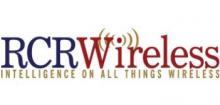
The move to Internet Protocol Version 6 addresses has been underway for a number of years, as the world exhausted the supply of IPv4 internet addresses. The momentum in software-defined networking and the internet of things is driving faster adoption of IPv6 — and the need for testing of devices to ensure that they can be successfully deployed in IPv6 environments, according to Tim Winters, the University of New Hampshire InterOperability Lab’s senior executive for software and IP networking.
UNH-IOL announced this week that it has expanded its IPv6 testing capabilities to meet requirements in the updated USGv6 profile, which is the National Institute of Standards and Technology’s compliance test program for IPv6. The revised profile is updated for the latest IPv6 standards, according to UNH-IOL, including testing in IPv6-only environments, testing IPv6 applications and services, and “providing a streamlined platform for other organizations and governments to utilize the profile and test methodology.” As Winters puts it, the original USGv6 profile was supposed to ensure that government customers could buy products tested to that profile to ensure that they were buying items that were compliant and would work properly. The updated profile brings in updates from the years since the original profile was introduced and adjusts to the new reality of IoT.
Winter said that IPv6 deployments are at about 20% globally and expecting continued growth, driven by the fact that more IoT and more SDN mean more demand for IP addresses.
“What we’re seeing now is IoT devices, smaller devices that are getting onto networks and need to support IPv6, while at the same time people are finding ways to make things more efficient and get creative with segment routing,” Winters said. “One of the things we’re trying to do is make sure that the devices work correctly — that you can put it on an IPv6 networks, it will get an address and it won’t do any harm to the network.”
UNH-IOL was one of the first labs to be accredited for IPv6-related testing that ensured implementations met NIST’s USGv6 standards, back in 2010. Now, it’s the only North American lab currently offering an accredited test program for USGv6, Winters said.
